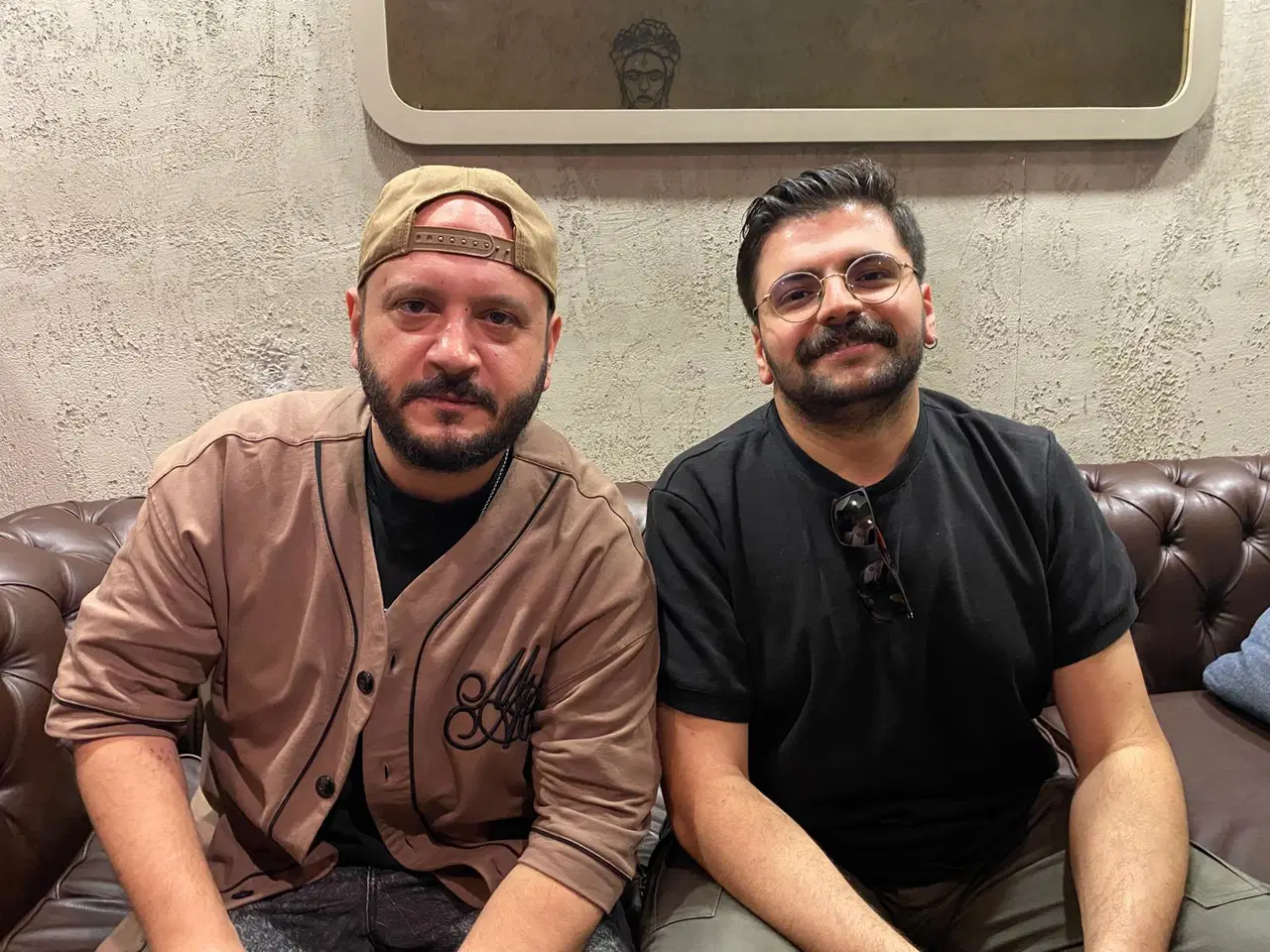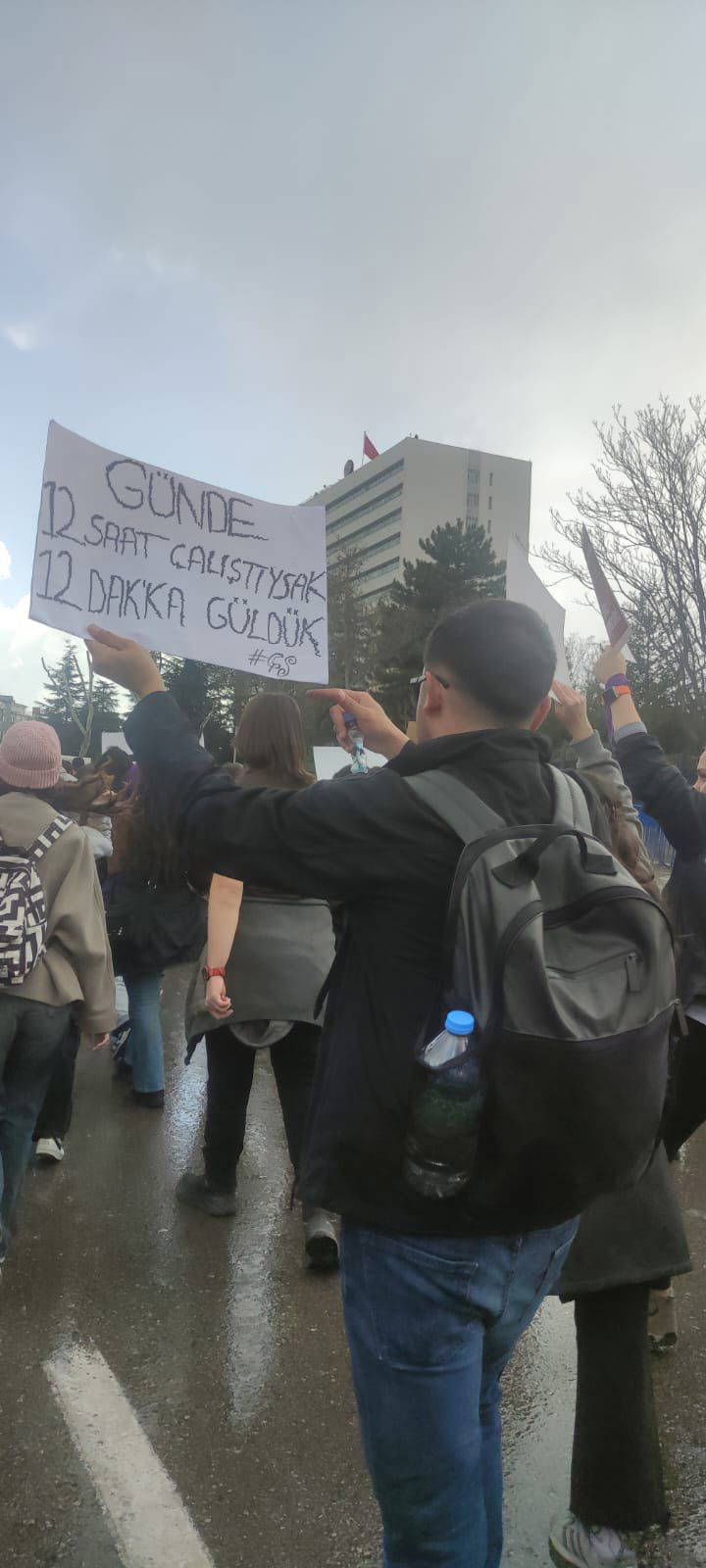The rebellious name of Turkish rap, Çağrı Sinci, whose 'arsenal is his cleavers', spoke to Cumhuriyet: 'Revolutionary rapper'

"Unorganized bandit" and "civil disobedient"; aka Çağrı Sinci, whose ammunition is his lines. "Rebellion is a must" he says in his song "Civil Disobedience" with İndigo, "now deal with the reasons, not just the result/ don't get informed by the major media, you have a brain/ rise up, rebel, get out of my way!"
The most original, most rebellious, most protesting yet romantic name of Turkish rap music: "This morning I found a reason not to die and/ my excuse this morning is you again/ I don't know why you are more beautiful in autumn than you always are/ even in summer."
Sinci is one of the poets of this era. He never leaves love, passion, rebellion, solidarity and fight out of his lines. His latest album "Başkası" is one of the albums that contains every emotion. Along with his solo concerts, Sinci will be singing Livaneli songs with Grup Mengene (Barış Atay and Nihat Mugil) and An Vokal, with lyrics he wrote specifically for that concert, at the "Sky is Everyone's: 60-Year Livaneli Legend" concerts specially prepared for Zülfü Livaneli's 60th year in the arts. Sinci will meet with his fans on June 28 at 21:00 with the hip hop orchestra Yeraltı Sakinleri.
We talked to Sinci about his latest album "Başkası", the Sky is Everyone project and his new projects.

- Let's start with the album Başkası. It is truly a "different" album compared to the previous singles and albums. Both in terms of form and style, and in terms of preferred style. Is this the first step of a transformation in the rap journey?
Actually, we can call it the last step. Because this is the stop where that process, that metamorphosis process ends. Because now my perspective on music, my approach to music, my writing style are in a completely different place than when I first started, and this album is like a symbol of that.
- You have a certain audience. Your fans really like your traditional style. When you start trying different things, there will be grumbling. Does that scare you?
I can't say that there was such an inconsistent change that there was so much grumbling. It was just an album where I highlighted certain details a little more. That's why it was loved even more because I presented the most dominant parts of my own style. In other words, no one ever asked where the old Ç.S. was. After every album or every song, they say: You can't do better anymore. This is the best. My best album always comes five years ago. Now in 2018, everyone says the best album is "Modern Zamanlar", "Çığlık". A lot of time has passed since "Çığlık", I made "Karanlık". A lot of time has passed since that, now they say your best album is "Karanlık". I know that the best album will be "Başkası" in five years. But I can examine my own music enough to compare it. Some people can't look inside themselves. I can listen to my own work as if it were someone else's.
'I DON'T CARE'- Is it important to you what your audience says?
I don't care what they say.
- Really?
Yes, yes. I don't care at all about what anyone says about my music. Nobody. I put that aside too. I used to take it into consideration. If they said something about my behavior, it would upset me. I don't care at all if this song is good or bad. Or when they say "make a song like this". If you leave it up to the listener, you'll end up repeating yourself a lot.
- What is different about Başkası compared to your other works? We would like to hear from you as the creator.
It's actually everything. The basic songs of the album are the songs that I've been making for years and saying "It's so beautiful, let it stay". I turned it into an album all of a sudden. Then I looked at that journey, the songs on that journey, the main subject is always alienation. I realized that I've turned more inward. Because I don't write just to sit down and write this anymore. I sit down and write. I look at what I've written later. But technically, the way I use my voice has settled a little more. And I think the most dominant difference is the musical difference. Because I put a lot of instruments into the album. Normally, my songs start, the lyrics come in, and there are lyrics until they end. When the lyrics end, the song ends. We tried to overcome this a little bit when we first worked with Savaş Ceyhan. In the albums Çığlık and Çağrı. Then, after making music with the Yeraltı Sakinleri orchestra, I realized that there shouldn't be lyrics in the whole song. So I left some room for the instruments. I left some room for the beats.
- So, will things continue in this vein from now on?
I don't know. You don't know. Not at all. I can't say I'll do it like this from now on.
THE POET OF THE MODERN AGE- If we were to call you a "poet of the modern age", would you agree? Let me also ask you the reason behind your emphasis on "lyrical quality"... Because Başkası is, in a way, one of the albums where this influence is most intense.
I give great importance to words. I said it before in another interview. If it doesn't make sense when read without music, I don't use those words. Everyone has something they do best. I always wanted to stand out with my words. Because that was one of the main reasons why I liked rap music, it was words. The relationship between the work and the nature connected me to this music and I always try to maintain that relationship and increase its dose.
- You also get a lot of nourishment from literature...
Yes, there are quotes from many poets in the Başkası album. From Ahmet Haşim to Atilla İlhan, Hasan Hüseyin Korkmazgil. These feed me. When I get stuck, I hide behind them a little and continue. I try to make this intertextuality a bit more quality. In other words, like grafting a tree, like grafting a new branch.
- You were an English teacher... What was your contribution to your rap journey?
It did more harm than good. It took up a lot of my time. Of course, this is not just about teaching. These survival concerns, economic concerns... Therefore, I have to teach. But yes, it did help. I collected a lot of stories. I saw a lot of people. And they became the stories that fed me.
- Are there any songs with a story in this sense?
A detail in a story causes you to tell something completely different. Like in the baby song, that baby is completely real. Or the Lighter Gas song. They are completely lived experiences.

- You have a stance. You are political, you protest, you always stand by the workers and laborers. I want to call you a "proletarian rapper"...
Our desire for justice comes to that point. It's not right to say "proletarian rapper" because I'm not a worker. I've never carried stones in my life. But a revolutionary rapper would be better. A revolutionary. I like that better.
- You and many rappers were on the streets during the March 19 process (the detention and arrest process of Ekrem İmamoğlu and his friends). Can you evaluate what kind of an impact they had?
It had both positive and negative effects.
- How did it have a positive impact?
It fed us. So, there are things left for us to tell. It's like creating a motivation, a resistance area to continue doing what we do, but of course it affected us very negatively. I can't lose hope. If I lose hope, I can't achieve anything anyway. So whether it gets better or worse, we will stop somewhere and try to tell something.
In fact, the ones who started this resistance were the children, the young people. The children who grew up listening to us. We got along well with them. The feeling of rebellion was mutual. That's why we took our place. At least to boost their morale. Otherwise, I could have gone there or not. But my being there boosted the morale of those children. That's why I went. I mean, in case a few people saw me and said, "Look, this guy came too."
- How were the returns?
It turned out great. There were banners for hundreds of my songs. Hundreds. If I were to write a book from now on, each page would have a banner with one of my words.
- Open and obvious question: What will happen to Turkish rap?
I swear I can't figure it out. I look at myself, man. I don't look at anyone anymore. I quit. I mean I got a little tired of that rap advocate mode. Let them do whatever they want. As long as I'm around, Turkish rap will always be good. Let them think for themselves. This happened, that happened, rap is corrupted. If it's meant to happen, it happens, I can't stop it. You'll stand in the right place. They'll see you and take you as an example. No matter how much you explain, you'll be an example with what you do. We're trying to do the right thing.
RAP WITH LİVANELİ- You shared the same stage with Zülfü Livaneli for a project. How did it feel to accompany his works with both his words and your own?
It was an incredible feeling. From the moment I received the first offer, I was over the moon and thought a lot. I didn't have to think much because there is a reference to a song by Livaneli in every song. Something like this happened on stage: Livaneli turned to me and sang a rap. He made our hand gesture, which is unique to rappers, on stage. He was very honored. I am very happy.
- A new album, maybe an EP, maybe a single... Will there be any work?
I'm going to release an instrumental album. I'm going to collect the beats I made. It'll be out in a month. And it'll be the first instrumental album. It'll have the beats of my most beloved songs. I got inspiration from Farazi for this album.
Cumhuriyet





